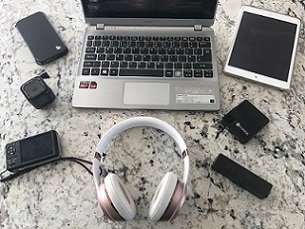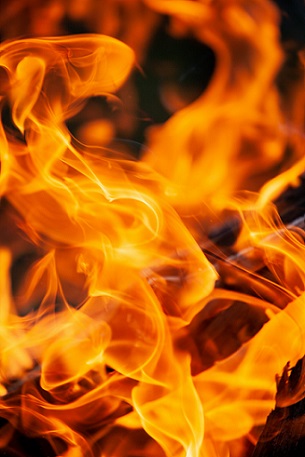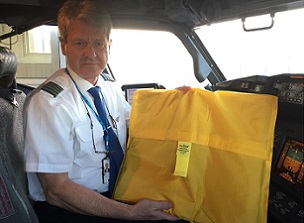 All these personal electronic items are powered by lithium batteries
All these personal electronic items are powered by lithium batteries
 A lithium battery fire can be very difficult to put out
A lithium battery fire can be very difficult to put out
 A pilot with an AvSax lithium battery fire containment bag
A pilot with an AvSax lithium battery fire containment bag
Most of us are putting ourselves at risk from lithium battery fires every day … and we don’t even know it.
Millions of everyday personal electronic devices (PED) are powered by lithium batteries yet most of us are flouting the safety rules and needlessly putting ourselves at risk of a lithium battery fire.
Leaving your phone on charge all night, charging it on soft furnishings such as a bed or settee or using a cheap charger can all be enough to start a potentially catastrophic fire.
So we’ve put together a handy guide of what NOT to do when charging your PEDs such as mobile phones, laptops, iPads and even vapes .
The danger is that if a lithium battery becomes faulty or damaged it goes into what’s known as thermal runaway.
This happens when one cell in a battery overheats it can produce enough heat – up to 900°C (1652°F) – to cause adjacent cells to overheat. This can cause a lithium battery fire to flare repeatedly and they are then very difficult to put out due to their intensely high temperatures.
That’s why on planes you’ll now hear the cabin crew telling passengers during the safety briefing to tell them immediately if your mobile phone or laptop starts to overheat, emit smoke or gets lost down the seat.
The last place you want a lithium battery fire is in the confined space of a passenger cabin on a plane at 35,000ft which is why many airlines now carry lithium battery fire containment bags called AvSax (http://avsax.com/) and this technology is being harnessed to deal with lithium battery fires in other industries such as inside recycling centres.
So here the main reasons lithium-ion batteries can catch fire and what you can do to prevent it from happing.